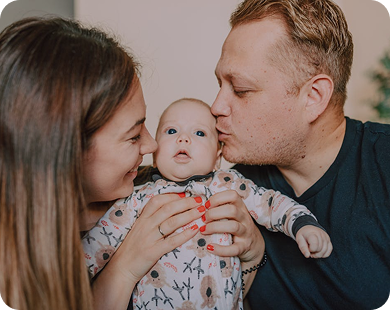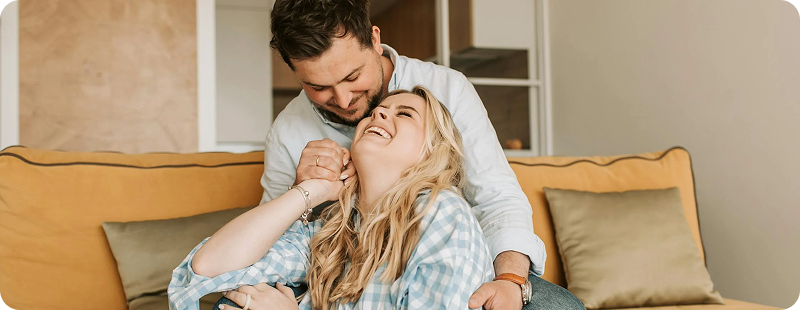When participating in egg sharing programs, you typically keep 50% of the retrieved eggs, though the exact number depends on your total egg yield, clinic protocols, and individual circumstances. Understanding fair distribution helps you make informed decisions about this generous fertility option.
Understanding Egg Sharing Programs
Egg sharing represents a beautiful intersection of generosity and fertility treatment. When you choose to share your eggs, you're not only helping another woman achieve her dream of motherhood but also making your own fertility treatment more affordable. The question of fairness in egg distribution is crucial to your decision-making process.
Most reputable fertility clinics, including those with transparent guarantee programs, follow established protocols for egg distribution. These protocols ensure both you and the recipient have the best possible chances of success while maintaining ethical standards.
Standard Distribution Models in Egg Sharing
The fairness principle in egg sharing typically follows these established models:
| Distribution Model | Your Share | Recipient Share | Minimum Total Eggs Required |
|---|---|---|---|
| 50/50 Split | Half of retrieved eggs | Half of retrieved eggs | Usually 10-12 eggs |
| Proportional Share | Based on age and prognosis | Based on recipient needs | Varies by clinic |
| Guaranteed Minimum | Minimum 6-8 eggs | Remaining eggs | 12+ eggs typically |
At Avida Fertility, we prioritize transparency in our egg sharing contracts and boundaries. Our medical team evaluates each case individually to ensure fair distribution that maximizes success chances for both parties.
Factors Influencing Egg Distribution
Several medical and practical factors determine how many eggs you'll keep in a sharing arrangement:
Your Age and Ovarian Reserve
Younger egg sharers typically produce more eggs, allowing for more generous sharing while still maintaining adequate numbers for their own treatment. Your AMH levels and ovarian reserve testing help predict your likely egg yield.
Response to Stimulation
Your body's response to ovarian stimulation medications directly impacts the total number of eggs available for sharing. Some women respond exceptionally well, producing 15-20 eggs or more, while others may produce fewer eggs despite optimal protocols.
| Stimulation Response | Typical Egg Count | Sharing Feasibility | Your Likely Share |
|---|---|---|---|
| Excellent Response | 15+ eggs | Ideal for sharing | 7-10 eggs |
| Good Response | 10-14 eggs | Good sharing candidate | 5-7 eggs |
| Moderate Response | 6-9 eggs | May not qualify | All eggs retained |
| Poor Response | Under 6 eggs | Not suitable for sharing | All eggs retained |
Egg Quality Considerations
Not all retrieved eggs are suitable for treatment. The quality grading process determines which eggs are viable for fertilization. Mature, high-quality eggs are distributed fairly between you and the recipient, while any lower-quality eggs may be allocated based on individual treatment needs.
Medical Guidelines for Fair Distribution
Professional medical organizations provide guidelines to ensure ethical egg sharing practices. According to the American Society for Reproductive Medicine, fair distribution should consider both parties' chances of achieving pregnancy while maintaining the voluntary nature of egg donation.
Dr. Sarah Johnson, a reproductive endocrinologist at Stanford University, explains: "Fair egg sharing requires balancing the donor's reproductive goals with the recipient's needs. We typically recommend that egg sharers retain at least 6-8 high-quality eggs to maintain reasonable success rates for their own treatment" (Johnson, S. et al., 2023).
Success Rate Considerations
Your success rates with shared eggs depend on several factors:
| Age Group | Success Rate with 6-8 Eggs | Success Rate with 10+ Eggs | Recommended Minimum |
|---|---|---|---|
| Under 30 | 65-70% | 75-80% | 6 eggs |
| 30-35 | 55-65% | 65-75% | 7 eggs |
| 35-37 | 45-55% | 55-65% | 8 eggs |
| Over 37 | 35-45% | 45-55% | 8-10 eggs |
These success rates reflect live birth rates per fresh or frozen embryo transfer cycle, helping you understand the impact of egg numbers on your treatment outcomes.
Financial and Emotional Considerations
Egg sharing programs offer significant financial benefits, often reducing your treatment costs by 50-70%. However, the emotional aspects require careful consideration.
Financial Benefits
The cost savings from egg sharing can make multiple treatment cycles more accessible. Many couples find that sharing eggs allows them to pursue additional retrieval cycles if needed, ultimately improving their chances of success.
Emotional Preparation
Sharing your eggs means another family may achieve pregnancy while you're still trying. This reality requires careful emotional preparation. Consider counseling to explore your feelings about potentially helping create a genetic sibling to your future child.
Clinic Selection and Program Transparency
Choosing the right clinic for egg sharing is crucial. Look for programs that offer:
| Program Feature | Why It Matters | Questions to Ask |
|---|---|---|
| Clear Distribution Policies | Ensures fair treatment | What's the minimum egg guarantee? |
| Comprehensive Screening | Protects all parties | What screening is required? |
| Counseling Support | Emotional preparation | Is counseling included? |
| Success Rate Transparency | Realistic expectations | What are age-specific success rates? |
At Avida Fertility, our transparent and safe egg sharing programs ensure you understand exactly how eggs will be distributed before beginning treatment. We provide detailed counseling and support throughout your journey.
Legal and Future Considerations
Egg sharing involves legal agreements that protect both parties. These contracts specify egg distribution, future contact policies, and responsibilities.
Important Legal Elements
Your egg sharing contract should clearly outline:
| Contract Element | Protection Provided | Your Rights |
|---|---|---|
| Egg Distribution Formula | Prevents disputes | Guaranteed minimum eggs |
| Anonymity Provisions | Privacy protection | Choose contact level |
| Future Disclosure | Child's right to information | Decide on openness |
| Medical Information Sharing | Health updates | Ongoing communication rights |
Consider the long-term implications of future disclosure to donor-conceived children. Some families choose open arrangements that allow future contact, while others prefer anonymity.
Optimizing Your Egg Sharing Success
To maximize your chances of success while sharing eggs, focus on physical preparation for egg sharing. This includes:
Lifestyle Optimization
Prepare your body for optimal egg production through proper nutrition, regular exercise, and stress management. Targeted supplements can improve your stimulation response, potentially increasing your total egg yield.
Medical Optimization
Work closely with your medical team to optimize your stimulation protocol. Some women benefit from specific stimulation protocols that maximize egg production while maintaining quality.
When Egg Sharing May Not Be Right
Not everyone is a suitable candidate for egg sharing. You should carefully consider alternatives if you have:
| Condition | Impact on Sharing | Alternative Options |
|---|---|---|
| Low Ovarian Reserve | Insufficient eggs to share | Focus on own treatment |
| Previous Poor Response | Unpredictable egg yield | Consider mini-IVF protocols |
| Advanced Age (38+) | Lower success rates | Prioritize own eggs |
| Genetic Concerns | Screening complications | Genetic counseling first |
Your fertility specialist will help determine if you're a good candidate for egg sharing based on your individual circumstances and treatment goals.
Frequently Asked Questions
What happens if I produce fewer eggs than expected?
If your egg retrieval yields fewer eggs than anticipated, most programs have minimum thresholds. If you don't meet the minimum for sharing (usually 10-12 eggs), you typically keep all retrieved eggs for your own treatment.
Can I change my mind about sharing after starting medications?
Most programs allow you to withdraw from sharing before egg retrieval, though you may be responsible for treatment costs. Discuss withdrawal policies with your clinic before beginning treatment.
How do I know the recipient is suitable?
Reputable clinics screen recipients thoroughly, including medical, psychological, and sometimes financial evaluations. You may have input into recipient matching decisions depending on your program's policies.
What if my shared eggs don't result in pregnancy for the recipient?
Egg sharing doesn't guarantee pregnancy for either party. Your responsibility ends with providing healthy eggs; treatment outcomes depend on many factors beyond egg quality.
Making Your Decision
Deciding how many eggs to keep when sharing requires balancing generosity with your own family-building goals. Consider your age, ovarian reserve, financial situation, and emotional readiness when making this important decision.
Remember that egg sharing is a generous act that helps create families while making your own treatment more accessible. The "fair" number of eggs to keep varies by individual circumstances, but most successful programs ensure you retain enough eggs to maintain reasonable success rates for your own treatment.
Work with experienced fertility specialists who can guide you through the medical, emotional, and practical aspects of egg sharing. At Avida Fertility, we're committed to ensuring fair, transparent, and successful egg sharing programs that benefit all parties involved.
Considering IVF treatment? Avida Fertility is here to support and guide you on your fertility journey. Reach out today for a personalized consultation and take the first step towards building your family with confidence.






.png)







.svg)
.svg)
